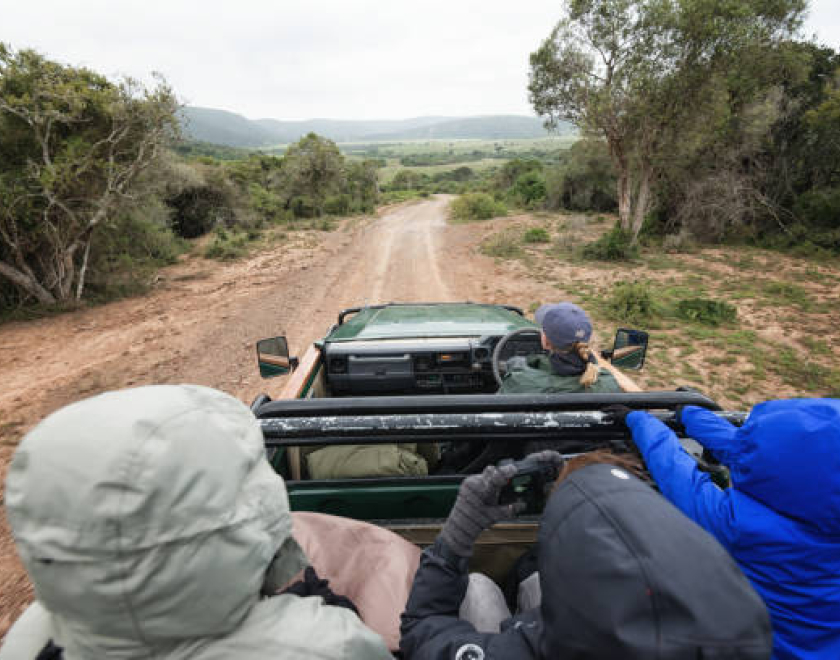
- Tanzania - East Africa
Should I Take a Guide? – Why Guided Safaris Are the Key to an Unforgettable Adventure
If you are planning your dream safari or an adventurous journey into the wild, one question often comes up: Should I take a guide? The short answer is yes — and for many compelling reasons. Whether you’re exploring Tanzania’s iconic Serengeti, trekking through Ngorongoro Crater, or discovering lesser-known reserves, having an experienced guide can make the difference between an average trip and a truly extraordinary one.
In this article, we will explore why you should take a guide on safari, the benefits of guided travel, the difference between guided and self-drive safaris, and tips on choosing the right guide for your trip.
What Does a Safari Guide Do?
Before deciding whether you should take a guide, it’s important to understand their role. A safari guide is far more than just a driver. They are your navigator, wildlife expert, cultural interpreter, safety officer, and storyteller all rolled into one.
Here’s what a safari guide typically does:
Wildlife Spotting – Guides have trained eyes that can detect animals from far away, even those hidden in the tall grass.
Sharing Knowledge – They know the behavior, habits, and seasonal movements of animals, making your sightings more meaningful.
Ensuring Safety – From understanding animal behavior to knowing safe driving routes, guides keep you safe in unpredictable environments.
Cultural Insight – Many guides share local traditions, history, and stories that enrich your travel experience.
Navigating Terrain – Guides know the roads, weather conditions, and park regulations to ensure a smooth journey.
When asking “Should I take a guide?”, these benefits alone make a compelling case.
Why You Should Take a Guide – Key Benefits
1. Expert Wildlife Knowledge
A major reason why you should take a guide is their expertise in wildlife tracking. They know where animals are most likely to be found and at what time of day. For example, lions are more active in the early morning or late afternoon, while elephants may gather near watering holes in the midday heat. Without a guide, you may miss these moments.
2. Increased Safety
Safari environments are unpredictable. A professional guide understands the signs of animal stress or aggression and will keep you at a safe but optimal viewing distance. They also know how to handle emergencies such as vehicle breakdowns or sudden weather changes.
3. Access to Hidden Gems
When people ask “Should I take a guide?”, they often overlook the fact that guides can take you to secret spots not marked on maps — quiet watering holes, scenic lookouts, and areas where rare animals are often spotted.
4. Hassle-Free Travel
Planning a safari route, dealing with permits, and navigating remote areas can be stressful. With a guide, you can relax and enjoy the scenery while they handle all the logistics.
5. Cultural Connection
A guide is often a local resident who can introduce you to local customs, languages, and stories. This makes your trip more immersive and meaningful beyond just wildlife viewing.
Chat with our expert direct via email!
Guided Safari vs. Self-Drive – Which is Better?
If you are debating “Should I take a guide or self-drive?”, here’s a breakdown:
| Factor | Guided Safari | Self-Drive Safari |
|---|---|---|
| Wildlife Sightings | High – guides know where to find animals | Moderate – depends on your luck and knowledge |
| Safety | High – trained professionals ensure safety | Moderate – risk if you don’t know animal behavior |
| Convenience | Very convenient – guide handles everything | Less convenient – you plan, navigate, and drive |
| Cost | Usually higher but includes expertise | Lower but can have hidden costs |
| Learning Experience | Rich – guides share knowledge and culture | Limited – you rely on guidebooks or apps |
While self-driving offers independence, most first-time visitors find a guided safari far more rewarding.
Types of Guided Safaris
When deciding whether you should take a guide, it’s helpful to know the different types available:
Private Guided Safari – You have a dedicated guide for your group, offering a personalized experience.
Group Guided Safari – You share a guide with other travelers, which can be more affordable.
Walking Safari Guide – Trained rangers lead you on foot, explaining animal tracks, plants, and ecosystems.
Specialist Guides – Experts in photography, birdwatching, or conservation who tailor the safari to your interests.
How to Choose the Right Safari Guide
If you’ve decided “Yes, I should take a guide”, here’s how to choose wisely:
Check Credentials – Look for certified guides with professional training and licenses.
Read Reviews – See what past travelers say about their knowledge, friendliness, and professionalism.
Ask About Specialties – Some guides specialize in photography, birdwatching, or cultural tours.
Communication Skills – Your guide should speak a language you understand and be able to explain complex topics clearly.
Local Experience – Guides who grew up in the region often have deeper insights and connections.
Common Misconceptions About Taking a Guide
When discussing “Should I take a guide?”, several myths often surface:
“I’ll have more freedom without a guide” – In reality, guides often adapt to your preferences, giving you flexibility while ensuring safety.
“Guides are only for beginners” – Even experienced travelers benefit from a guide’s deep local knowledge.
“It’s too expensive” – While guided safaris can cost more upfront, they save you from mistakes, wasted time, and missed experiences.
Real-Life Safari Stories – The Guide Advantage
Imagine driving in the Serengeti without a guide. You pass a cluster of bushes without noticing the leopard hiding in the shade. With a guide, they stop, point out the leopard’s tail hanging from the branch, and explain its hunting habits. Suddenly, your trip becomes a learning experience rather than just a drive.
Or picture being deep in Tarangire National Park when your vehicle gets stuck in mud. A professional guide knows exactly how to get out, often with the help of local rangers — saving hours of frustration.
FAQs About Taking a Guide
1. Is it mandatory to have a guide?
Not always, but in certain parks and reserves, guides are required for safety and conservation reasons.
2. Can I hire a guide for part of my trip?
Yes, many travelers choose a mix of guided and self-drive days.
3. Do guides expect tips?
Yes, tipping is common as a way to show appreciation for their hard work.
4. Are walking safaris always guided?
Absolutely — for safety, walking safaris must be led by certified guides and armed rangers.
5. Can guides customize my itinerary?
Yes, especially on private safaris, guides can adjust activities to your interests.
Final Thoughts – Should You Take a Guide?
So, should you take a guide? Absolutely. While self-driving offers independence, a guide adds knowledge, safety, and depth to your safari. They help you see more, learn more, and experience the wilderness in a way you simply couldn’t on your own.
If you want a stress-free, enriching, and unforgettable African adventure, hiring a professional safari guide is one of the best decisions you can make.
📌 Build Your Tour Today!


Olduvai Tours Tan_Africa
We ensure that your journey is not just a trip but a meaningful exploration of Tanzania’s natural and cultural treasures. Let us turn your dream safari into reality!
Booking your Adventure with Olduvai Tours Tan Africa
Olduvai Tours Tan Africa specializes in creating unforgettable Tanzania safari experiences, offering expert guides, personalized itineraries, and high-quality service.
Other Tours You May book with Olduvai Tours Tan_Africa:
kilimanjaro-altitude-sickness-prevention guide /Hikers making steady progress up Kilimanjaro, staying safe. Kilimanjaro High Altitude Sickness Prevention Guide 2026+ See More…
Tanzania – East Africa Is It Possible to Do a Day Trip to a Park from Arusha? Arusha is…

